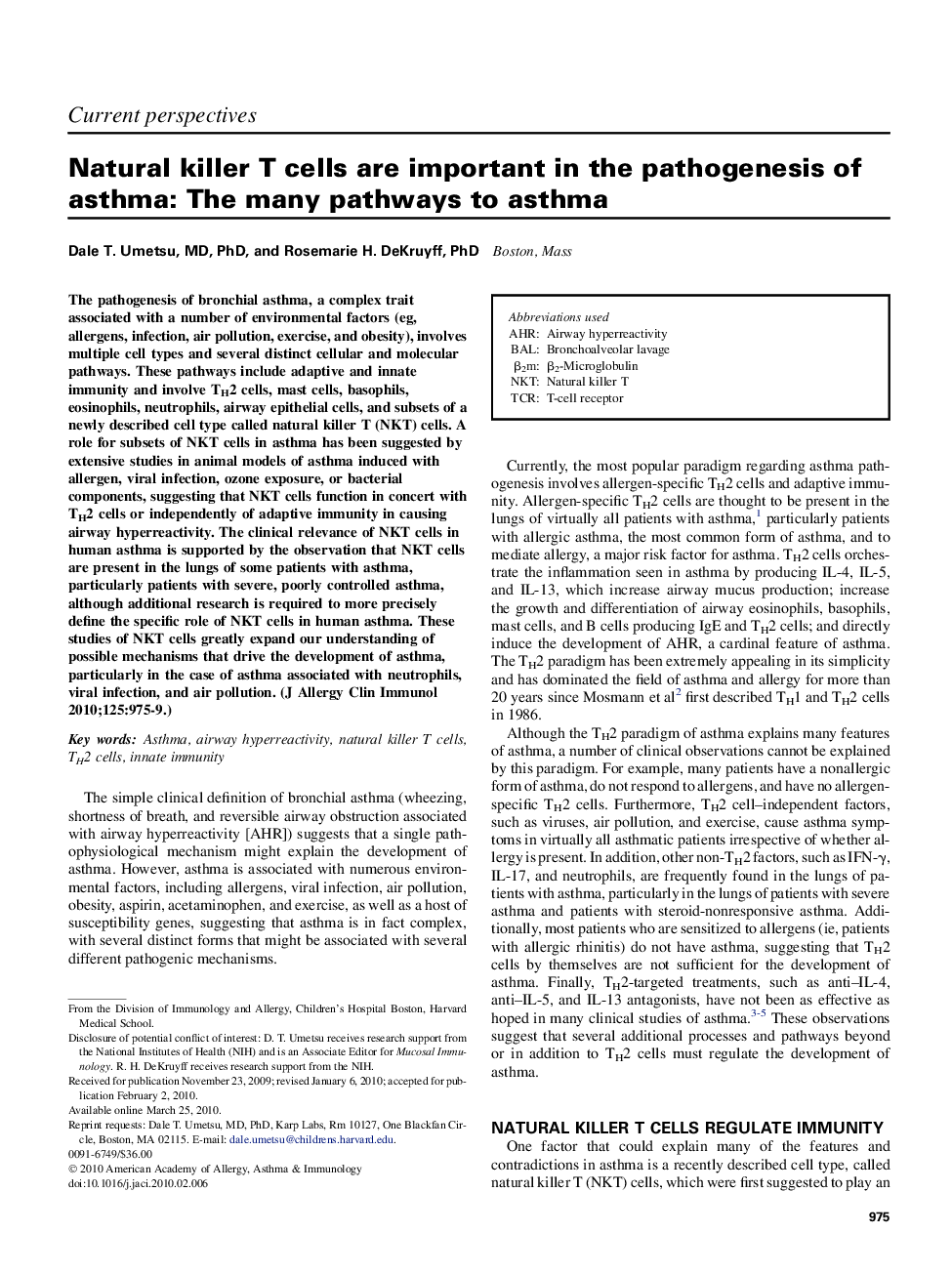| کد مقاله | کد نشریه | سال انتشار | مقاله انگلیسی | نسخه تمام متن |
|---|---|---|---|---|
| 3200800 | 1201943 | 2010 | 5 صفحه PDF | دانلود رایگان |

The pathogenesis of bronchial asthma, a complex trait associated with a number of environmental factors (eg, allergens, infection, air pollution, exercise, and obesity), involves multiple cell types and several distinct cellular and molecular pathways. These pathways include adaptive and innate immunity and involve TH2 cells, mast cells, basophils, eosinophils, neutrophils, airway epithelial cells, and subsets of a newly described cell type called natural killer T (NKT) cells. A role for subsets of NKT cells in asthma has been suggested by extensive studies in animal models of asthma induced with allergen, viral infection, ozone exposure, or bacterial components, suggesting that NKT cells function in concert with TH2 cells or independently of adaptive immunity in causing airway hyperreactivity. The clinical relevance of NKT cells in human asthma is supported by the observation that NKT cells are present in the lungs of some patients with asthma, particularly patients with severe, poorly controlled asthma, although additional research is required to more precisely define the specific role of NKT cells in human asthma. These studies of NKT cells greatly expand our understanding of possible mechanisms that drive the development of asthma, particularly in the case of asthma associated with neutrophils, viral infection, and air pollution.
Journal: Journal of Allergy and Clinical Immunology - Volume 125, Issue 5, May 2010, Pages 975–979